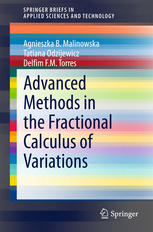

Most ebook files are in PDF format, so you can easily read them using various software such as Foxit Reader or directly on the Google Chrome browser.
Some ebook files are released by publishers in other formats such as .awz, .mobi, .epub, .fb2, etc. You may need to install specific software to read these formats on mobile/PC, such as Calibre.
Please read the tutorial at this link: https://ebookbell.com/faq
We offer FREE conversion to the popular formats you request; however, this may take some time. Therefore, right after payment, please email us, and we will try to provide the service as quickly as possible.
For some exceptional file formats or broken links (if any), please refrain from opening any disputes. Instead, email us first, and we will try to assist within a maximum of 6 hours.
EbookBell Team

4.8
24 reviewsThis brief presents a general unifying perspective on the fractional calculus. It brings together results of several recent approaches in generalizing the least action principle and the Euler–Lagrange equations to include fractional derivatives.
The dependence of Lagrangians on generalized fractional operators as well as on classical derivatives is considered along with still more general problems in which integer-order integrals are replaced by fractional integrals. General theorems are obtained for several types of variational problems for which recent results developed in the literature can be obtained as special cases. In particular, the authors offer necessary optimality conditions of Euler–Lagrange type for the fundamental and isoperimetric problems, transversality conditions, and Noether symmetry theorems. The existence of solutions is demonstrated under Tonelli type conditions. The results are used to prove the existence of eigenvalues and corresponding orthogonal eigenfunctions of fractional Sturm–Liouville problems.
Advanced Methods in the Fractional Calculus of Variations is a self-contained text which will be useful for graduate students wishing to learn about fractional-order systems. The detailed explanations will interest researchers with backgrounds in applied mathematics, control and optimization as well as in certain areas of physics and engineering.